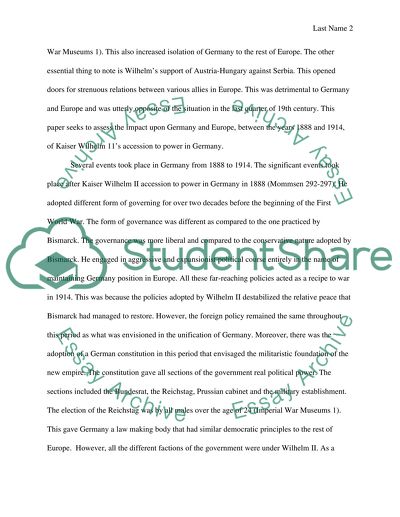Cite this document
(“Kaiser Wilhelm II Essay Example | Topics and Well Written Essays - 2500 words”, n.d.)
Kaiser Wilhelm II Essay Example | Topics and Well Written Essays - 2500 words. Retrieved from https://studentshare.org/history/1487787-kaiser-wilhelm-ii
Kaiser Wilhelm II Essay Example | Topics and Well Written Essays - 2500 words. Retrieved from https://studentshare.org/history/1487787-kaiser-wilhelm-ii
(Kaiser Wilhelm II Essay Example | Topics and Well Written Essays - 2500 Words)
Kaiser Wilhelm II Essay Example | Topics and Well Written Essays - 2500 Words. https://studentshare.org/history/1487787-kaiser-wilhelm-ii.
Kaiser Wilhelm II Essay Example | Topics and Well Written Essays - 2500 Words. https://studentshare.org/history/1487787-kaiser-wilhelm-ii.
“Kaiser Wilhelm II Essay Example | Topics and Well Written Essays - 2500 Words”, n.d. https://studentshare.org/history/1487787-kaiser-wilhelm-ii.


